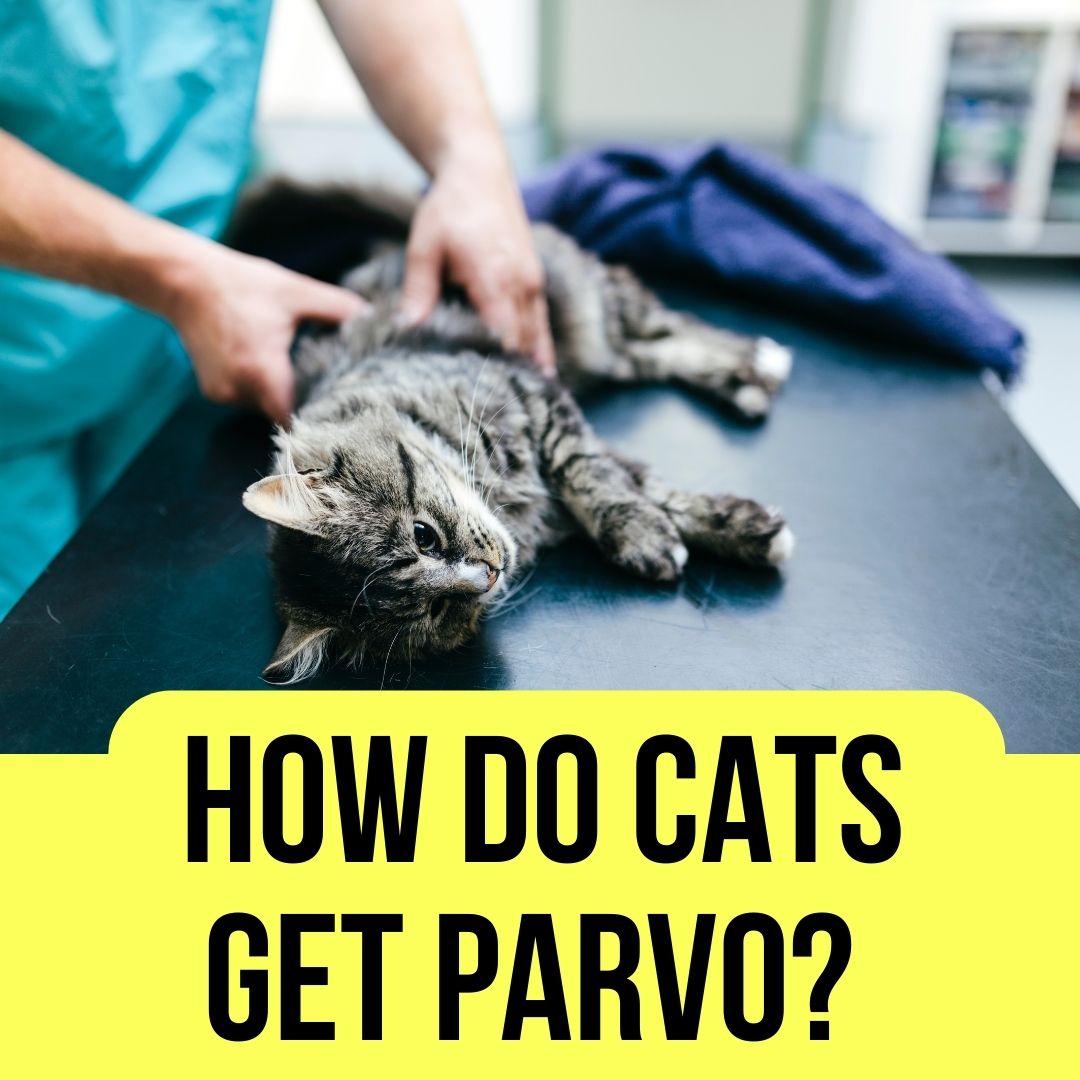Can cats get parvo? How do cats parvovirus? Of course yes. But, in cats, it is often known as panleukopenia or feline parvovirus. It is very contagious. Once it enters your cat’s body it starts infecting cells very rapidly. The feline parvovirus can survive in cold as well as heat and is resistant to disinfectants.
Dog parvo and cat parvo are two different viruses. These viruses are species-specific. Many studies say that some strains of dog parvo can infect cats. But, it is quite rare. Therefore, it is very important to preserve your cat from this type of deadly infection.
Contents
How do cats get parvo Virus?
The feline parvovirus can sustain in the surrounding area for up to 1 year. Also, you require a special disinfectant to kill the virus. The majority of the cat gets parvo via the faeces of the infected cat. Also, it can pass through toys, water dishes, food, bedding, etc.
Once your cat gets parvo, the virus will start infecting it very fast. Due to this, your cat will shed feline parvovirus in the faeces for 2 to 3 days. However, the infection can go from cat to cat if many cats are residing in a single place.
Younger cats or kittens are more prone to get feline parvovirus. They get parvo when the antibodies they got from their mother have waned. Unvaccinated cats are also prone to have infections. Therefore, it is important to give vaccines to the cat.
Pregnant cats that are infected can pass the disease to the unborn kittens. This virus causes problems in brain development that show when the kittens start walking.
Symptoms of parvo in cats
Feline parvovirus is usually seen in cats that are unvaccinated or incompletely vaccinated. Adult cats that are unvaccinated can get infected but they show the very least symptoms.
As the virus divides the cells rapidly, the signs related to gut lining can show up. Other signs include-
- Vomiting
- Depression
- Anorexia
- Diarrhoea
- Abdominal pain
- Fever
- Dehydration
- Ropey feeling intestines
Parvovirus can affect the bone marrow and this can lead to low red cell and white cell counts. Without sufficient white cells, the body is susceptible to further infection. A low white cell count is a key function of this disorder in comparison to other intestine infections.
Kittens infected before they are born or quickly after delivery may also seem very uncoordinated because of the virus attacking unexpectedly developing brain cells. This is a circumstance known as cerebellar hypoplasia and remains lifelong.
How to cure parvo in cats
The best way to protect your cat from parvo is to give the F3 vaccine. It is important to give all the vaccine shots to the cat. When the kitten is born, her immune system is weak and at a higher risk of infection.
The best thing is that the first milk of its mother is full of antibodies. When the kitten drinks that milk, it gets mixed in the bloodstream. Therefore, the kitten relies on the mum’s antibodies and gets immunity to fight the virus.
How can I treat my cat for parvo at the vet?
These antibodies last for weeks or some months. How long they remain in your kitten relies upon things like which number your cat was in the delivery order, how nicely she nursed, and the quality of the mum’s immune system. The antibodies to different sicknesses are put off at different times.
We do not know whether the antibodies against parvo will wear off in any kitten. But we do understand that by 14–16 weeks all of the antibodies are gone out of your kitten and she will need to rely upon her own immune system.
Can cats get parvo from dogs?
It is possible that cats can get parvovirus from dogs. According to a study, canine parvo is contagious to cats. It was assumed that canine parvovirus cannot affect cats. But the new strain can infect cats as well.
According to the study done by Simon Clegg and his co-researchers, the following conclusion was made.
- Animal shelter with cats and dogs were chosen to do the experiment. There were 74 cats and 106 dogs. Their faecal samples were collected.
- 34% of the samples were having canine parvovirus
- All the positive samples had infections.
To date, this is the only research that has studied parvo in dogs being contagious to cats. It possibly does need further research to nicely understand what the dangers are to the general cat and canine populations.
The bottom line is that parvo is it usually spreads from canine to canine nearly every time. However, it means you need to genuinely be extra cautious about cats catching parvo from canines.
How do I tell if my cat has parvo? Signs To look For
With the following symptoms, you can have an idea that your cat has parvo
- Vomiting
- Depression
- Diarrhoea
- Abdominal pain
- Dehydration
- Anorexia
- Fever
Final words
FPV is an incredibly contagious and life-threatening infection that may linger for years in the environment. It is only because of vaccination that it isn’t always seen at devastating levels. Vaccination and the right hygiene are the cornerstones of prevention.
If you’ve got any similar questions please contact your vet as soon as possible. Tell your buddies about this infection, and collectively promote the use of vaccination, that allows you to prevent seeing more instances of this dreadful disease.
